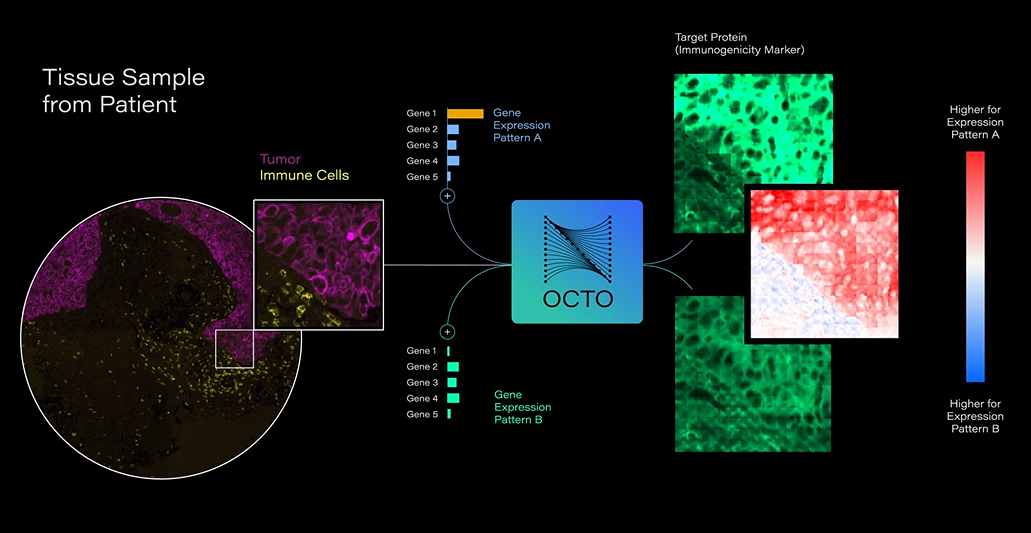Agenus and Noetik Partner to Develop AI-Based Biomarkers Using Virtual Cell Models
Agenus has partnered with San Francisco-based Noetik to develop AI-enabled predictive biomarkers for its lead immunotherapy regimen, botensilimab (BOT) and balstilimab (BAL). The collaboration aims to improve clinical response prediction by applying Noetik’s virtual cell foundation models directly to Agenus’ clinical dataset.
At the center of the effort is Noetik’s OCTO model, a 1.5 billion-parameter foundation model trained on a proprietary dataset spanning 200 million tumor and immune cells across multiple cancer types. Built as a “world model” of patient biology, it integrates spatial proteomics, transcriptomics, DNA sequencing, and pathology to simulate complex tumor behavior.

Illustration of OCTO's multimodal counterfactual simulation; Source: NOETIK
OCTO uses structured masking and visual prompting to infer biological responses to therapeutic interventions, enabling counterfactual simulations that predict how gene or protein perturbations might alter disease progression. Designed to scale and generalize, OCTO allows researchers to identify drug targets, validate biomarkers, and explore treatment strategies in silico.
Agenus’ BOT/BAL combination, targeting CTLA-4 and PD-1 pathways, has shown activity in over 1,200 patients across nine tumor types, including those traditionally resistant to immunotherapy. By identifying biomarkers predictive of response, the partnership seeks to stratify patient populations and increase the likelihood of success in pivotal trials.
Agenus retains exclusive rights to use insights from the collaboration in its clinical and commercial programs.
Topics: AI & Digital